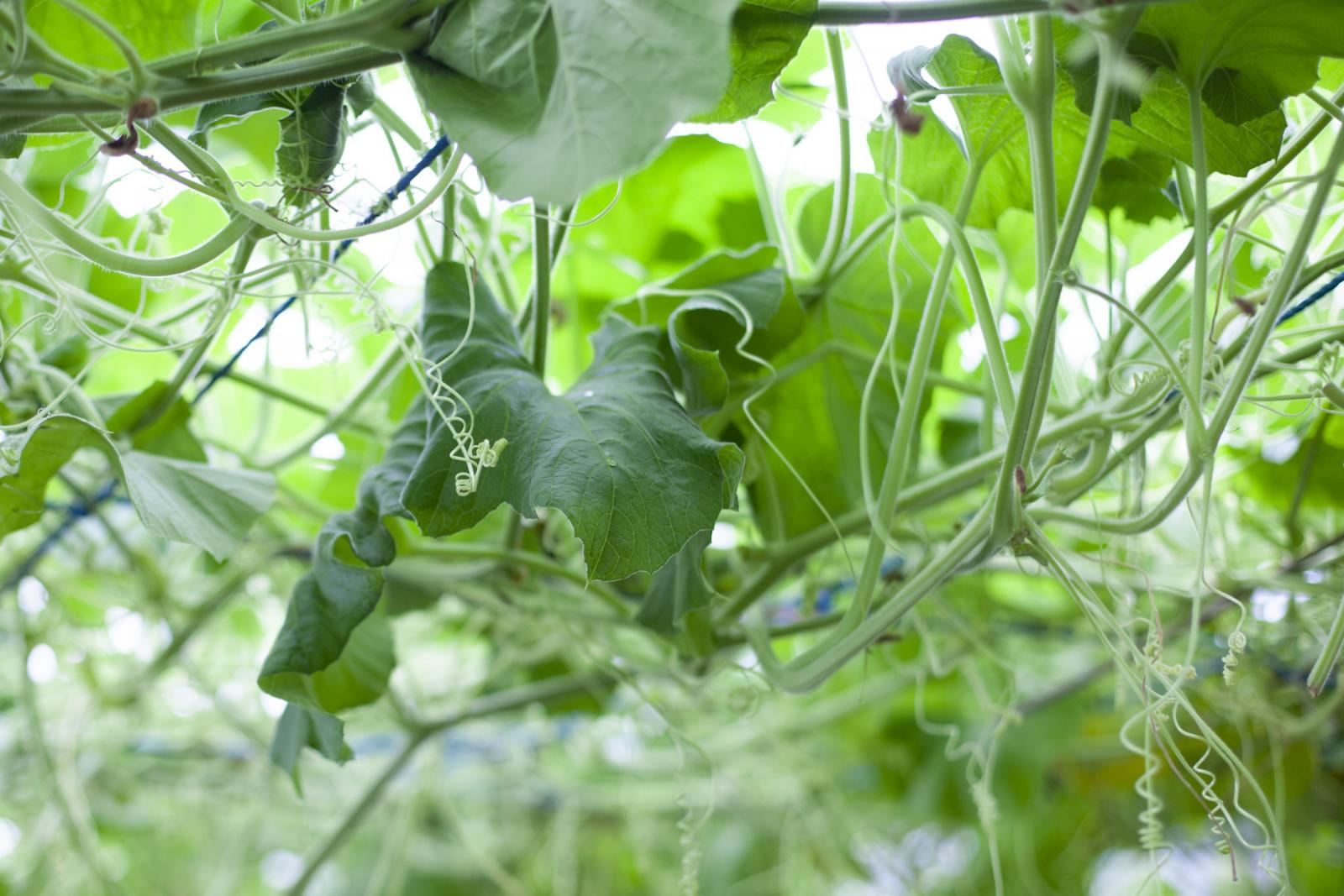Anti-racism in community food growing: Signposting
We've gathered together information on anti-racism and community food growing to highlight issues, spotlight good practice and inspire action.

What information and why?
Below is useful and inspiring information, which showcase several organisations leading the way in the community food growing sector. The aim is to:
- highlight some inequalities in our sector (and the individuals and organisations challenging it)
- share issues and learning opportunities relevant to community food growing, such as Decolonising the Garden and culturally appropriate food growing, to further promote racial justice
- inspire food gardens to take action to create racial justice and become more inclusive, welcoming spaces that reflect their local communities.
For info about the practical steps we’re taking across our food growing networks, contact the Capital Growth team.
Sustain is working towards a number of organizational goals to tackle racial injustice in the food system. To find out more about Sustain’s commitments read our blog by Chief Executive, Kath Dalmeny, and our statement on diversity, equalities and inclusion.
- Useful terms
- Sustain’s Community Food Growing Diversity Survey
- Organisations leading the way
- Sustain recordings
- Podcasts or recordings
- Campaigns
- Reading
- Practical resources
Useful terms
Culturally Appropriate Food Growing: Increasing the diversity and variety of food plants in our growing spaces. Adopting practices of growing different types of fruits and veg led and decided by the users of the growing spaces, is vital to make these spaces more welcoming and appropriate for everyone in our communities.
Decolonising the Garden: For hundreds of years, colonialists brought back economically profitable plants to their home countries, exploiting indigenous knowledge and claiming ‘discovery’ of many plants in the process. This has created false histories and led to food and plants in the global north to be steeped in colonialism. Decolonising the Garden is understanding the historical context of the spaces and the plants to provide a more accurate portrayal of history and identify how existing structures can be exploitative.
Sustain’s Community Food Growing Diversity Survey
As part of Sustain’s work to better understand how we can create racial justice and inclusion in community growers, gardens were surveyed in Autumn 2020. Read our survey summary.
Organisations leading the way
Disclaimer: These organisations are exemplary examples of movements and enterprises that you may draw inspiration from, however, not all may have the capacity to give advice and accommodate external needs.
- @Liberationpermaculture (on Instagram): a diverse group of permaculture practitioners exploring the topic as a tool for social justice.
- Black Environment Network work to enable full ethnic participation in the built and natural environment, by reaching out to ethnic communities and stimulating participation, as well as supporting mainstream organisations.
- Black Rootz, within Ubele Initiative, is the first multigenerational black led growing project in the UK.
- Blak Outside is a grassroots led project that contributes to vital community work.
- Bloom series, a series of inspiring events, activities and training connecting BIPOC and minority ethnic communities with nature, led by outstanding BIPOC nature practitioners.
- British Islamic Gardens is a non-profit based in Reading, run by volunteers who wish to create sustainable garden spaces around mosques.
- Grow2Know, created by a group of community members in response to the Grenfell disaster, aims to build gardens to inspire, educate, heal and empower diverse communities.
- Kew Gardens seeks to understand and protect plants/fungi, for the sustainability of society and the environment. Following the 2020 Black Lives Matter marches, Kew is on a mission to challenge and enhance their Equality, Diversity and Inclusion (EDI) strategy.
- Land in Our Names, a grassroots Black-led collective committed to reparations in Britain by connecting land and climate justice with racial justice.
- May Project Gardens, a London-based grassroots organisation empowering marginalised groups in addressing poverty, disempowerment and access to resources and influence.
- Social Farms & Gardens is a UK wide charity supporting communities to farm, garden and grow together.
- Soul Fire Farm (International), based in USA, this is an Afro-Indigenous community farm committed to uprooting racism in the food system)Wild in the City is a non-profit CIC who encourage urban community engagement and well-being through activities within nature.
Sustain recordings
- Growing Culturally Appropriate Food (hosted by Capital Growth)
- Diversity and inclusion in the food and farming sector (webinar hosted by Sustain)
Podcasts or recordings
- Other Voices in Garden History (hosted by The Garden Trust)
- Race and Farming in the UK (webinar hosted by Dee Woods and the Landworkers Alliance)
- Building an Antiracist Farming Movement (webinar hosted by LION and Landworkers Alliance with Leah Penniman)
- Diversity, Equity and Inclusion Principles (reflections from Jacqueline Lim from She Leads Change)
- Reflections on Diverse Recruitment (from Public Interest Research Centre)
- Farming While Black (Leah Penniman: African Diasporic Wisdom for Farming and Food Justice)
- Unearthed – Dirt on our Hands (Overcoming botany’s hidden legacy of inequality with James Wong)
- Welcoming Diversity in Community Farms and Gardens (webinar hosted by Social Farms and Gardens with Monica Tyler, Vauxhall City Farm)
Campaigns
- Black Lane and Spatial Justice Fund (crowdfunding campaign fund led by Amahra Spence, to redistribute resources, including finance and knowledge, engaging in decolonial frameworks and collective organising to redefine our relationships to land and space)
- #decolonisethegarden Instagram account bringing anti-racism to the garden
- #digitoutcampaign launched by Mothin Ali (of My Family Garden YouTube videos) to address racism in gardening and horticulture
- Climate Reframe project have highlighted the best BIPOC (Black, Indigenous (UK-based) People of Colour) who are climate experts, campaigners and advocates, working and living in the UK.
Reading
- An Introduction to Decolonising the Garden (Apercu)
- There is no acceptable neutral position on history of colonialism and racism (Kew Gardens Director in the Guardian)
- Engaging Diverse Communities Through Community Gardening (Rebecca Ellis)
- Weeding out Horticulture’s Race Problem (James Wong)
- Other Arts are Political, Why not Gardening (James Wong)
- British Farming, Diversity and Racism (Bristol Bites Back Better)
- Reflections on Diversity, Food and Farming in Britain (from Open Food Network UK)
- Anti-racism and anti-oppression resource list (Growing Communities)
- Inclusive Community Gardens (International: Vancouver)
Practical resources
- Inclusive Volunteerism: What you can do right now to be a better champion
- Inspiring multi-ethnic involvement at community farms and gardens (Chillies and Roses report by Social farms & Gardens)
- Creating an inclusive volunteering environment (from Volunteer Scotland)
- Culturally Appropriate Food Growing (International: Green Thumbs, Canada)
- Diversity, Equity, & Inclusion in Community Planning Guide, Goals and Activities (International: USA)
- American Public Gardens Association: Employee Development, Diversity, Inclusion (International: USA)


